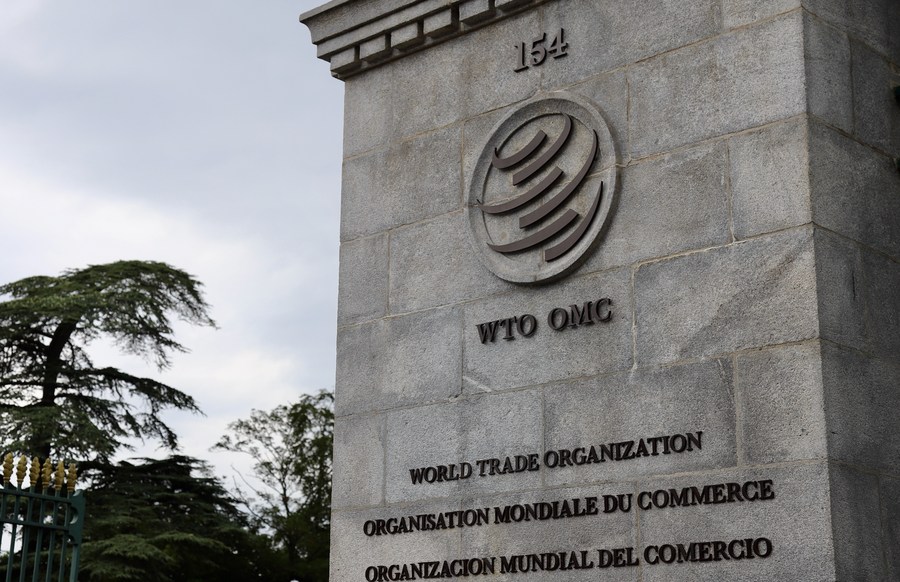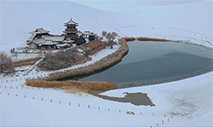WTO and role of China
This year marks the 20th anniversary of China accession to the World Trade Organization (WTO). Since China joined the WTO in 2001, the country played a very active role. No doubt, China is a beneficiary of the WTO, but, its contribution to global trade and international economic activities has also been greatly appreciated. China shares of global trade and investment are much larger than those of any other individual country. More specifically, China has become a major source of inspiration and a role model for many developing countries. Chinese investment and trade data speak volumes about its deepening relations with developing nations.

Photo taken on July 15, 2020 shows the exterior view of the World Trade Organization (WTO) headquarters in Geneva, Switzerland. (Xinhua/Li Ye)
Founded on Jan. 1, 1995, in Geneva, Switzerland, the World Trade Organization (WTO) is an intergovernmental organization that regulates and facilitates international trade between its members. At its heart are the WTO agreements, negotiated and signed by the bulk of the world’s trading nations and ratified in their parliaments. The organization’s goal is to ensure that trade flows as smoothly, predictably, and freely as possible. It removes trade barriers and settles trade disputes, paving the way for free and fair trade.
However, the WTO has recently faced some serious challenges, and it can be said more accurately to have entered into a troubled state of affairs, as its appellate body has become paralyzed. Some countries have politicized trade issues and have come to adopt unilateralist and protectionist practices, which have greatly undermined the effectiveness and authority of the WTO system. The US is a unique superpower and has opted to politicize almost all international organizations and platforms, including the UN, and its affiliated institutions.
The US has used these institutions as tools to achieve its political objectives and coerce others who may differ from the American approach. Unfortunately, under a unipolar world, this situation has happened with greater frequency. Now, America has gotten used to such practices and wants to continue the same path moving forward. On the other hand, the rise of a number of emerging economies has transformed the world into a multipolar one once again. It is hard for Americans to accept or digest this change. They are not accustomed to emerging changes in geopolitics. Hence, they are still wielding such organizations to launch trade wars, sanctions, and other coercive tactics.
Shu Jueting, spokesperson for China's Ministry of Commerce told a press conference on Novermber 25 that China is willing to work with all parties to support the inclusive development of the multilateral trading system, support the legitimate rights and interests of developing members, and firmly maintain the position of the multilateral trading regime as the main channel for international rules-setting. The spokesperson also stressed the need to safeguard the authority and effectiveness of the WTO, so that the organization can play a greater role in the recovery and governance of the global economy.
It is believed that many countries will support the Chinese point of view and stand with China. It is a very critical moment and the world may avail of this opportunity to introduce reforms in a manner to make the WTO a credible organization, where it can act on merits and achieve its designed goals. The WTO must be de-politicized and remove all pressures. It should strengthen itself to implement its own agenda of free and fair trade. The WTO must settle all disputes amicably based on their merits and reject any form of coercion.
China is not alone in this call, having raised the concerns of many other nations, especially those from the developing world. All nations and individuals are being appealed to advocate for the strengthening of the WTO and its original charter. Those few individual countries, who seek to derail the WTO, ought to be condemned strongly and compelled to recognize the real mandate of the organization. The general public has shown its high expectations for the upcoming ministerial meeting.
Zamir Ahmed Awan is a senior fellow with the Center for China and Globalization (CCG) and a sinologist at the National University of Sciences and Technology in Pakistan. E-mail: awanzamir@yahoo.com.
This article does not necessarily reflect the views of People's Daily Online.
Photos
Related Stories
- China supports concluding negotiations on fishery subsidies before WTO conference
- China's WTO entry facilitates globalization, benefits global growth -- U.S. economist
- China a defender of global trade rules, not manipulator
- How "Double Eleven" 20 years ago benefits the world
- China a faithful WTO promise keeper, not breacher
Copyright © 2021 People's Daily Online. All Rights Reserved.










